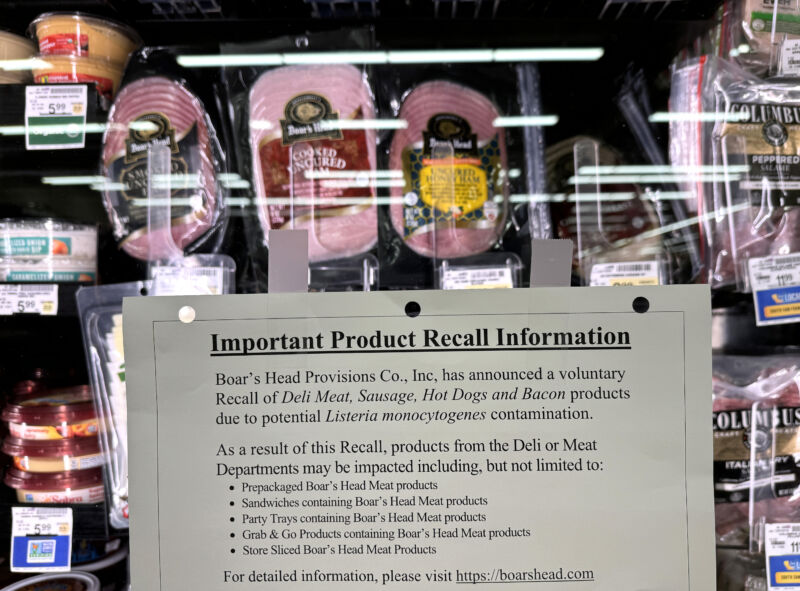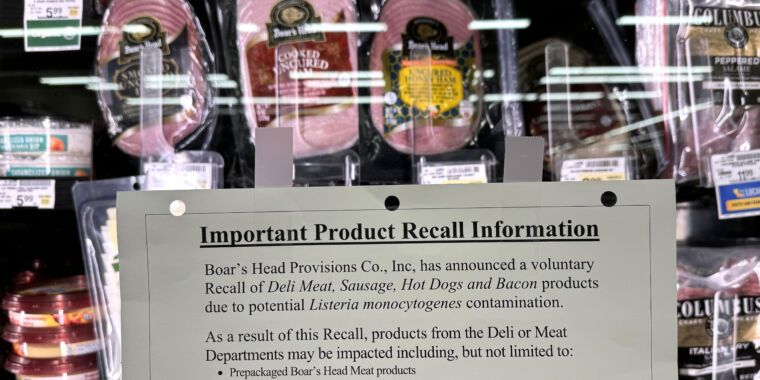
A third person has died in a nationwide bacterial outbreak linked to Boar’s Head deli meats. Last week, the company recalled more than 7 million pounds of its meat, adding to a July 26 recall of more than 200,000 pounds of meat. In total, 71 types of products made and sold nationwide between May 10, 2024, and July 29, 2024, have been recalled.
The outbreak has now sickened 43 people in total, up from 34 last week, according to an update from the Centers for Disease Control and Prevention on Thursday. There have been 43 hospitalizations, up from 33 last week. The illnesses are being reported from 13 states. The three deaths in the outbreak include one each from Illinois and New Jersey, and the new death is from Virginia. The CDC expects the number of illnesses to date to be significantly lower than the actual cases, and that more states may be affected.
The diseases occurring in the outbreak are caused by Listeria monocytogenesa foodborne bacterium that is especially dangerous to pregnant women, people 65 or older, and people with weakened immune systems. In these at-risk groups, the bacteria are more likely to spread beyond the gastrointestinal tract and cause an invasive infection called listeriosis. During pregnancy, listeriosis can cause miscarriage, stillbirth, premature birth, or a life-threatening infection in newborns. Of nonpregnant women who develop listeriosis, nearly 90 percent require hospitalization and one in six die.
Symptoms of listeriosis may include fever, muscle aches, headache, stiff neck, confusion, loss of balance and convulsions, sometimes preceded by diarrhea or other gastrointestinal symptoms.
Growing outbreak
Many more people may become ill in the outbreak than current numbers indicate. In many infected people, the bacteria cause only relatively mild infections that do not require medical attention. Even if they seek medical care, laboratories do not routinely test for listeriosis in patients with mild gastrointestinal illness. Finally, although many infected people develop symptoms within two weeks of exposure, symptoms can develop up to 10 weeks after eating contaminated food, and there are additional delays in connecting cases to an outbreak.
According to a CDC investigation, the first cases discovered in the outbreak date back to late June. Health researchers in Maryland and New York independently identified L. monocytogenes in unopened containers of Boar's Head brand liverwurst. Further testing in late July confirmed that the strain of L. monocytogenes The bacteria found in the liverwurst products matched the strain of bacteria that sickened people during the outbreak.
The CDC advises people not to eat any of the recalled products. Instead, throw them away or return them for a refund. Boar's Head has a list of the recalled products on its website. The CDC advises consumers to look for “EST. 12612 or “P-12612” in the USDA inspection mark on product labels. People who purchased recalled products should clean their refrigerators, the U.S. Department of Agriculture said.

